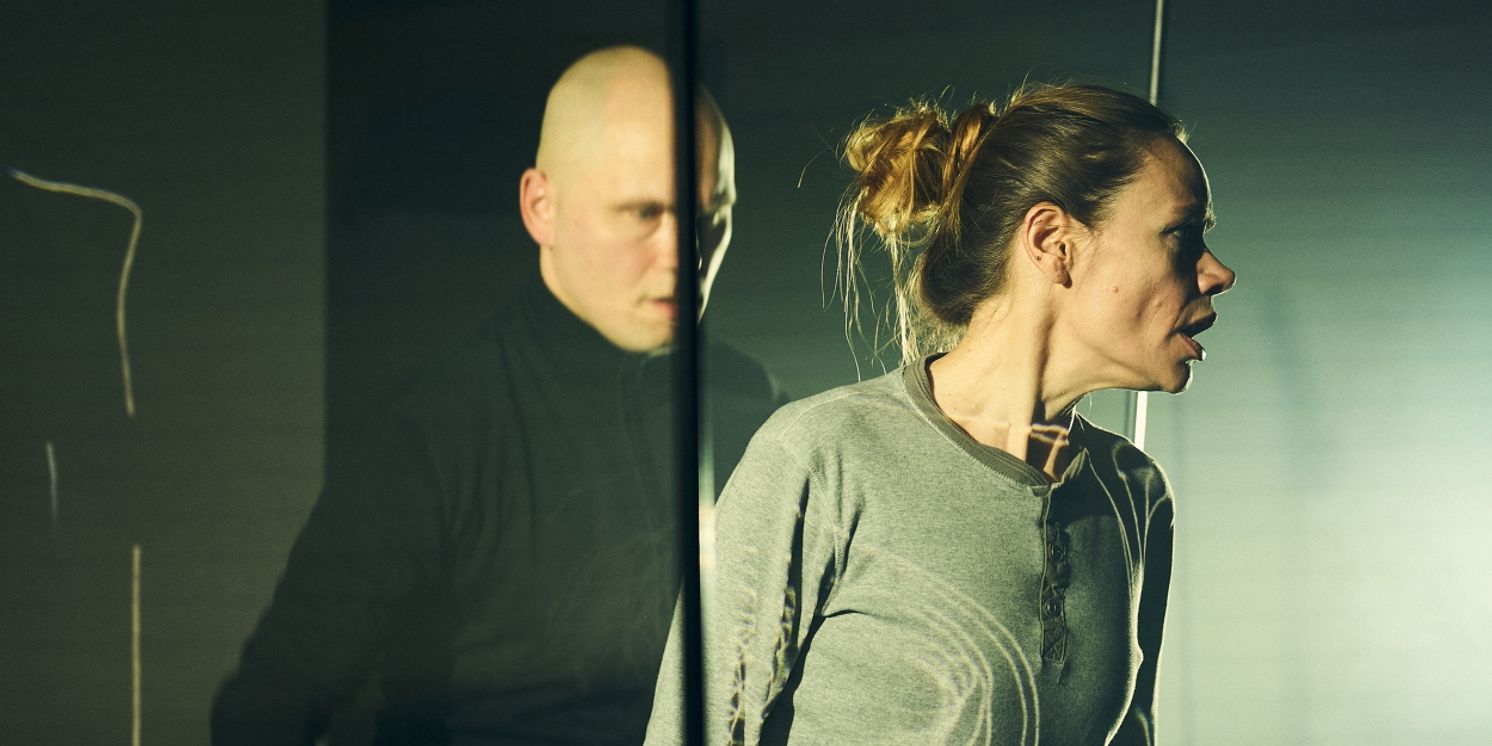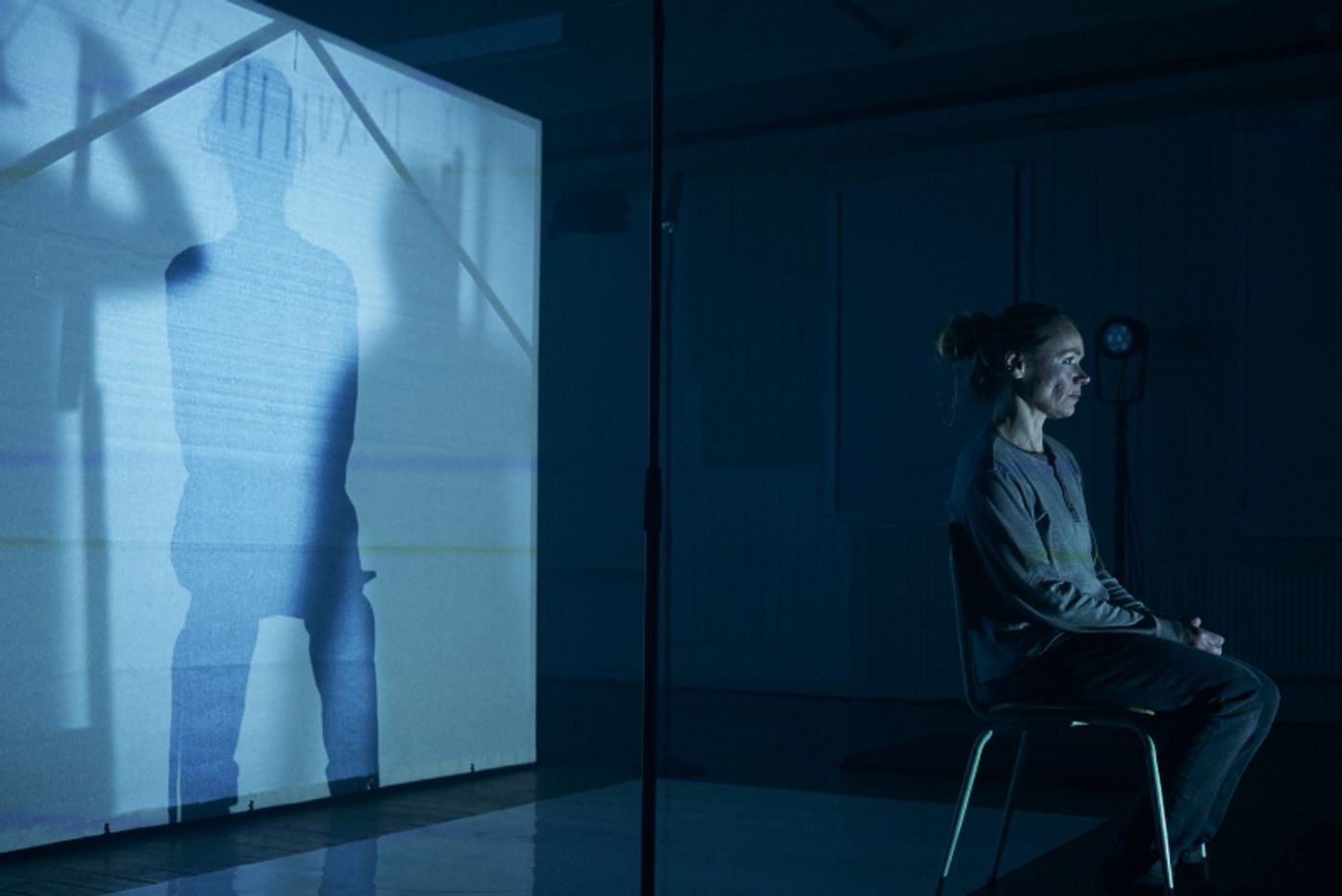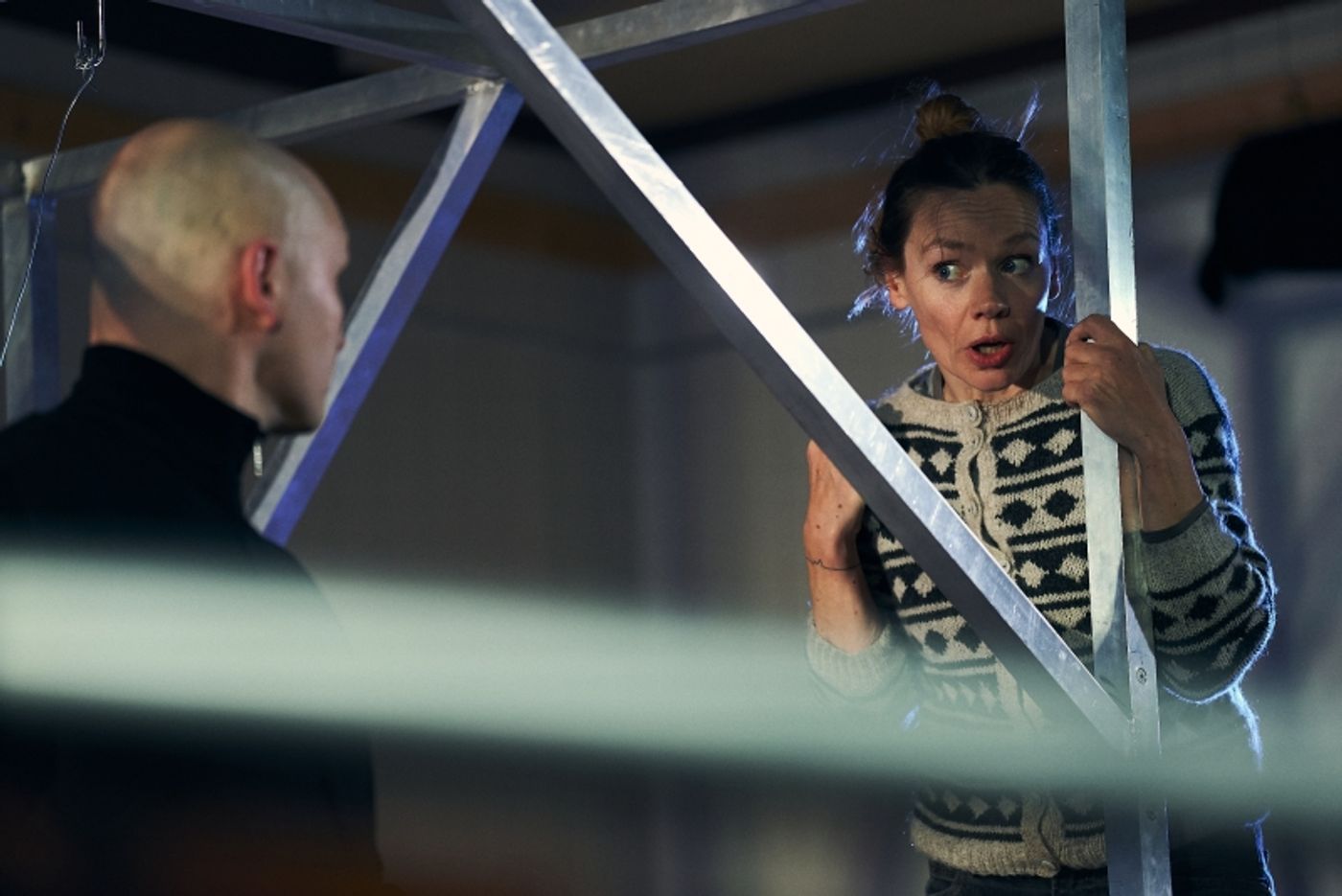
![]() In the dimly lit theatre, the audience is transported into the mysterious world of Castle of Joy a production by Det Ferösche Compagnie, a Faroese theatre company. Directed and written by the multi-talented Búi Dam, with Kristina Sørensen Ougaard leading the cast, this experience is as enigmatic as it is haunting.
In the dimly lit theatre, the audience is transported into the mysterious world of Castle of Joy a production by Det Ferösche Compagnie, a Faroese theatre company. Directed and written by the multi-talented Búi Dam, with Kristina Sørensen Ougaard leading the cast, this experience is as enigmatic as it is haunting.
Castle of Joy draws inspiration from the life and work of Pól Jóhannus Poulsen, also known as Joy, a figure born in 1925 in a small village in the Faroe Islands – an island off Denmark. The play tells the tale of a child with neuro-diverse tendencies who gets excluded from society due to perceived differences, Joy’s determination to construct a new world that he can identify with despite societal rejection serves as the backdrop for the production. Ougaard narrates and acts out the story standing mainly centre stage and using intense physicality and a face full of expression. Dam comes in at points for added narration or to add to the array of sound effects.

The stage is set in darkness, with only a lone piano situated stage left and hanging metal tubes swaying gently. This unconventional percussion setup, while intriguing, occasionally distracts from the main action on stage, pulling focus away from the actors' performances. However, the use of a metal frame upstage displaying the change of scene, coupled with the sound of gravel underneath, overall ingeniously aids in storytelling, adding depth and texture to this unusual production.
From the outset, a palpable sense of unease permeates the air, as the music, a melodic yet repetitive lounge-like composition, sets the tone for what unfolds. Ougaard is direct and intense and flits between English and Froese language; the dialect is rare and heavy, adding to the unsettling atmosphere, drawing the audience deeper into the narrative's murky depths of a lost child.
Through the first half the story progresses through the life of Joy ‘the odd ball’ and his battles in bullying and abuse growing up. The audience is then led into the second half, where the setting shifts into the devastating effects a misunderstood child has in society. The devastating consequences Joy was led to commit leading him into an isolation cell within a mental institution.

Here, the stage is populated with a backdrop projector with a display of a myriad of oddball characters, their faces looming in the backdrop illuminated by four stark spotlights. It is within this stark environment that the tale of a child who doesn't fit in, and the consequential descent into darkness really unfolds. As the production grinds to a halt and Joy returns to his life in Faroe we see the ‘castle of joy’ he builds until his death, hundreds of rooms all made from sustainable materials. The message behind this starts to become philosophical and we contemplate the understanding and interpretation of reality. We ponder questions; Can we each discover solace within the framework of our own mental constructs, no matter how unconventional within society they may appear?
Societal exclusion, neuro-diverse children and the consequences otherness has on someone growing up, Castle of Joy transcends the confines of traditional storytelling, offering audiences a thought-provoking and immersive theatrical experience into the life of a misunderstood child.
Castle of Joy is like going into the mind of someone else’s brain, listening to a story but with a tinge of excitement and intrigue. Inventive staging and a haunting score, it leaves an indelible mark on the hearts and minds of its audience members, inviting them to ponder the shadows that lurk within society and us all. A well-deserved standing ovation.
Through this fearless exploration of the human brain, Det Ferösche Compagnie cements their place for me as pioneers in the world of innovative theatre, leaving us eagerly awaiting their next production.
Castle of Joy is at Barbican Theatre until 2 March
Photo Credits: Barbican
Reader Reviews
Videos

